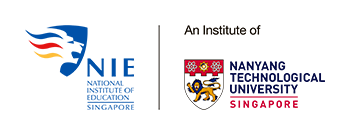
|
|


|

|
|
|
- |
|
|
|
|
Course synopsis |
|
This course provides an overview to the intellectual, socio-affective and moral needs of learners with high ability. Teachers will be introduced to the historical and philosophical background and current thinking in the education of learners with high ability. The course would also look into the typical personality characteristics of highly intelligent and creative persons. Other issues related to spiritual intelligence, emotional giftedness, moral reasoning, intensities in energy levels and positive maladjustment will be explored. Discussions of motivational and volitional strengths as sources of productive behaviours; underachievement and dual exceptionalities will be featured as well to enhance the capacity of professionals in this area to make a difference in their students’ development and address their affective, moral, as well as cognitive needs. |
|
View More |
Objective |
|
At the end of this course, students will
1. Understand the characteristics of High Ability Learners (HAL) and their affective and moral needs 2. Knowledge of major conceptions of giftedness and how these translate into educational programming and provisions, including the curricular implications for HALs. 3. Dispel common myths about the social and emotional functioning of gifted people and contrast trends in research from 1900-the present regarding gifted people’s social and emotional adjustment. 4. Describe the strengths and weaknesses of the available empirical literature on the traits and characteristics (including social, emotional, and moral needs) of the gifted. COURSE PREREQUISITES: • A good Bachelor’s degree from a recognised university; and • A teaching qualification such as the Postgraduate Diploma in Education from the National Institute of Education, Singapore or at least ONE year of relevant working experience in education. |
Outline |
|
This course will cover:
1. Theories of Intelligence 2. Conceptions of High ability & Talent 3. Cognitive and Motivational Needs: Learning and High ability Persons C 4. Identification of High Ability Learners 5. Meeting Intellectual needs of HALs & Talented 6. The Creativity and the High Ability Learner Gifted 7. Intra-personal (Emotional & Moral) Dimensions & related issues 8. Interpersonal (Social) Dimensions and related issues 9. The Twice Exceptional: High ability Learners with special needs 10.Issues of Gender & Culture 11.Parenting and parents of the high ability learner For the information of MOE officers: SFEd Area of Practice: Differentiated Instruction SFEd Level of Practice: Accomplished SFEd Descriptors addressed:
|
Course fee |
||||||||||||||||||
*MOE Educators include MOE & Direct Hire Staff from Independent, Specialised Independent and Specialised Schools. |
Pre-requisite |
|
Gain knowledge of major conceptions of giftedness and how these translate into educational programming and provisions, including the curricular implications for HALs.
|
Who should attend |
|
Education professionals seeking to enhance their knowledge, ideas and best practices in educating high ability learners and talent
|
You might be interested in... |
Programmes accredited to: |
|
|
Show more programmes |